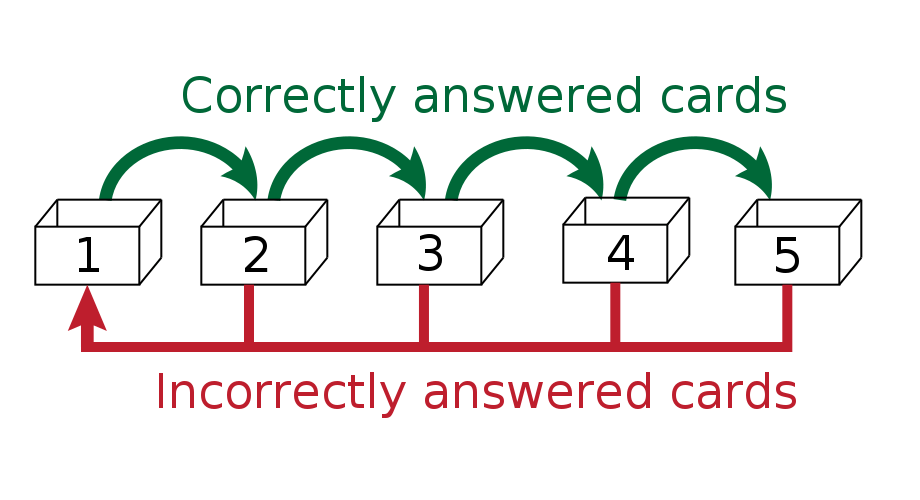 If you want to know how to study for law school in the best possible way, you’re in the right place.
If you want to know how to study for law school in the best possible way, you’re in the right place.
As the author of the bestselling book, How to Learn and Memorize Legal Terminology, I’ve helped dozens of students pass their LSAT exams and their Bar exams.
The trick?
You need a plan, a bit of self-understanding, a schedule and the memory optimization strategies you’ll find on this page.
That’s right:
Improving your memory for everything involves in the law is the key.
So whether you’re looking for first year law school tips or you need help for more advanced stages, this page has the information you need to succeed.
Let’s dive in!
How to Prepare for Law School: 4 Important Tips to Put You Ahead
I remember when I tool Law 12 in high school. It was one of the most exciting courses because it helped me start avoiding many critical thinking issues early on in life.
If you’re in a high school that doesn’t offer critical thinking courses, you can take the initiative and start reading these critical thinking books.
Make no mistake, improving your critical thinking skills a.s.a.p. will put you ahead of the game long before you start studying for the LSAT. It will also make sure that you’re ready to pass the bar exam years ahead of sitting for it.
With this point in mind, here are some other tips to help you set yourself on the right path as a student of this important topic.
One: Improve Your Grades
Many people never get the opportunity to study the law at all. That’s because they have horrible grades.
If that’s you, don’t fret. Here’s how to turn lower grades into top marks.
If you want to know how to succeed in law school, it’s really all about the grades at the end of the day.
Two: Get Involved In A Debate Club
Even if you don’t plan to argue cases in court, you’ll be well-served by learning how to make your case and provide evidence that supports your claims.
Being a skilled debater will also help with studying law because you’ll understand the rhetorical strategies involved in successful communication.
Three: Start Completing Critical Thinking Exercises
Studying the law and serving as a lawyer will give you a real brain workout. All the more reason to start training now.
Here are 9 critical thinking exercises you probably won’t find anywhere else. They’re even better than some of the exercises you find in books on how to study for the LSAT.
Another point here is that mental training should be an ongoing process. You always want to be at the top of your game, so the sooner you get started, the better.
Four: Make Friends With Legal Professionals
I remember when my friend Brennan Mitchell started law school at Queens University in Kingston, Ontario.
Before he bought a single textbook, he started booking information interviews with his future professors and lawyers in the community.
This simple preparation was very useful as he went through the program. He always had people he could speak with about the topic of law itself. And he had a personal support team.
When he later moved to Windsor to complete a dual Canadian/USA law degree, he repeated the procedure. Except this time it was easier because some of his original circle of legal professionals were able to help him make contacts in the new city.
So many future lawyers miss this simple step. Yet, it is one of the most important things to do. As they say, you are the average of your five closest friends, so please make sure they are good ones.
How to Succeed in Law School: 7 Law School Study Tips for Success
When it comes to succeeding at law school itself, each of the tips I’m about to share are incredibly valuable.
Let’s dig in.
One: Make Your Own Course Outline (Ideally By Hand)
Outlining involves preparing course overviews. It’s important not only for developing your memory, but some final exams are “open book.”
This means that the better your outline, the faster and more thorough you’ll be. Time is very important during exams.
Also, memory science shows that by writing these outlines in your own handwriting, you’ll remember more. Scientists call this principle active recall, and memory expert Lynne Kelly says that handwriting is one of the most powerful “encryption” processes.
Taking matters into your own hand in this way also promotes self-regulation, which one study demonstrates is particularly useful of law students.

Two: Learn To Chunk Down Complexity
I was on a private coaching call with a student preparing for the Bar earlier today.
She showed me large illustrations packed with multi-step data.
By all means, it’s a lot of information and she’s right that you have to know it all in detail.
But that doesn’t mean we have to take it all in at once. Using a chunking memory strategy is key.
Strategies for chunking effectively include:
- Flashcards
- Anki
- Advanced flashcard methods like Zettelkasten and the Leitner System
Three: Commit Legal Precedents To Memory
Many of my legal students who take up memory techniques (read from them on the testimonials page) learn to remember longer passages.
You can do this verbatim, and it will make you an excellent law student. Later, it will make your career.
Even if you don’t commit many legal precedents to memory, practicing with a few will give you fantastic experience with delivering your presentations from memory.
Four: Use This Hack To Eliminate Deadline Stress
You’ll have lots of papers to write and lots of tests. When I was in university, the constant deadlines used to drag me down.
That is, until I found a powerful strategy for eliminating exam date and deadline stress.
The instant I got an assignment, I would start working on it. In some cases, this wasn’t possible, so I would put a date in my calendar to start the work as early as possible, ideally 2-3 weeks.
Remember when I talked about making friends above? Another variation on this is getting to know the program secretary too.
I often went to the secretary’s office to see if I could get exams in advance of my courses even starting. Knowing the assignment dates, the readings involved and having that head start helped me immensely.
Highly recommended.
Five: Learn To Review Effectively
Although I’m famous for helping people memorize complicated information quickly, some repetition is always needed to learn.
In fact, the reason we learn facts about the law is precisely so we can repeat them.
To avoid mindless rote learning, explore spaced repetition thoroughly.
You’ll save a lot of time as you commit large amounts of information to your long-term memory in a strategic manner.
Six: Work On Your Reading Skills
As legendary lawyer Alan Dershowitz has pointed out on his podcast, being an effective lawyer is about reading – lots of reading.
Learn to optimize your reading skills as soon as you can. You’ll be doing a lot of it.
Spending some time on your comprehension skills is also important.
Seven: Don’t Play Games Of Comparison
In addition to reading, the law involves a high-level of observation about what others are doing and how.
However, when it comes to both law school and a full law career, the opportunity you have is to:
- Observe
- Reflect
- Do something better or at least different
If you copy what your opposition or your fellow law school students do, you’ll wind up with similar results.
To be truly outstanding in your field, you need to always be looking for ways to optimize your skills and stand out.
Law School Study Tips Your Should Not Ignore
If there’s one law school tip above all, it’s to invest in improving your memory.
When I wrote How to Learn and Memorize Legal Terminology, helping people just like you do that was my goal.
Most memory techniques can be mastered within a few days of study and practice. Of course, others might take longer. The key is to get started now.
I suggest that you learn to use the Memory Palace technique.
It will help you take any legal term and associate it with a familiar location. Later, when you need to recall the term, you’ll be able to find it.
To learn more, please consider signing up for my FREE Memory Improvement Course:
You’ll discover in just a few short hours and some simple exercises how to use this technique.
Once you’ve mastered these fundamentals, you can add on other mnemonic tools that will help you remember numbers.
Dealing with numbered sections and ordinances is a key aspect of the law, so all the more to start learning these techniques. You can literally remember everything you need to study using the best possible mnemonics.
Finally, this particular technique will help you remember your arguments and weave them into a good story.
As we know, the law is always shifting, and often it’s the case that they lawyer who can tell the best story wins.
Although navigating the vast landscapes of the law can be daunting, you know have a lot of knowledge from this article.
You’re poised to take the best possible actions and perform better in law school.
Here’s to the observations and presentations only you can tell and to the clients who eagerly await your keen legal advice and representation!
Related Posts
- Terrified to Start Studying Law? Try These 3 Memory Tips
Studying the law doesn't have to be scary. You just need a solid understanding of…
- 7 Law School Tips for Success, Productivity & Endurance
If you want to know how to study law, here's your blueprint to law school…
- Memory Loss Story And Memory Recovery Tips With Jennie Gorman
Memory loss is frightening. However, the solution may be simpler than you think. Jennie Gorman's…










2 Responses
This works for any field. Great Advice!
Thanks so much for stopping by.
Are you currently studying the law?